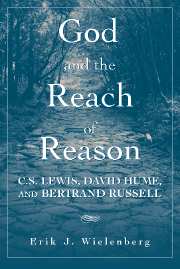3 - Miracles
Published online by Cambridge University Press: 05 June 2012
Summary
INTRODUCTION
Graham Greene‘s short story “The Second Death” centers on the deathbed fears of a sinful man. His fears stem from a mysterious event that happened while he was a child. He had been declared dead and was being carried out to be buried “when a doctor stopped them just in time.” Reflecting on this childhood incident, the dying man remarks:
[W]hen I came around that other time, I thought I'd been dead. It wasn't like sleep at all. Or rest in peace. There was someone there all round me, who knew everything. Every girl I'd ever had. Even that young one who hadn't understood…. it must have been a dream, mustn't it? The sort of dream people do get when they are ill. And I saw what was coming to me too. I can't bear being hurt. It wasn't fair. And I wanted to faint and I couldn't, because I was dead…. [S]uppose it was true. Suppose I had been dead. I believed it then, you know, and so did my mother. But you can't trust her. I went straight for a couple of years. I thought it might be a sort of second chance. Then things got fogged and somehow … [i]t didn't seem really possible. It's not possible.
The narrator of the story is the dying man's companion, who has rushed to his bedside to try to comfort him as he faces death.
- Type
- Chapter
- Information
- God and the Reach of ReasonC. S. Lewis, David Hume, and Bertrand Russell, pp. 121 - 152Publisher: Cambridge University PressPrint publication year: 2007



